What treatment
Find 10+ Anorexia Treatment Clinics in Tijuana
Find Top Anorexia Treatment Clinics in Tijuana, Offering Advanced Treatments
New Path Ibogaine
Overview
Discover safe and effective Ibogaine Treatment in Rosarito Beach, Mexico at New Path. Transform addiction recovery with professional care and lasting results.
Read more details
Casa Renacimiento
Overview
Discover Casa Renacimiento in Tijuana, Mexico, offering addiction treatment with personalized care, holistic therapies, and a supportive recovery environment.
Read more detailsCasa Santa Isabel
Overview
Discover top Ibogaine treatment at Casa Santa Isabel in Tijuana, Mexico. Experience effective care in a serene environment. Book now at PlacidWay!
Read more detailsClinica Nuevo Ser Centro de Rehabilitacion contra las Adicciones
Overview
Clínica Nuevo Ser es un centro especializado en el tratamiento de adicciones como el alcoholismo, drogadicción, adicción al juego (Ludopatía) y diversos trastornos mentales como la codependencia, la baja autoestima y trastornos de personalidad.
Read more detailsDiscover your treatment options with a free, no-obligation quote!
Get your quote now!Experience Ibogaine Treatment Center
Overview
Experience Ibogaine Treatment Center is the best addiction clinic in Tijuana, Mexico, offering personalized ibogaine therapy and expert aftercare. Contact us today for free consultation.
Read more detailsGenesis Ibogaine Clinic
Genesis Ibogaine Clinic provides best Addiction Treatment in Rosarito, Mexico. Book online now Heroin Addiction, Cocaine Addiction, and Alcohol Addiction at Genesis Ibogaine Clinic.
Renovación de Vida
Renovación de Vida is a Drug Rehab Clinic in Tijuana, Mexico providing opportunity for drug addicts to transform their lives and live healthier and happier.
Ibogaine Cancun
Overview
Ibogaine Cancun provides addiction treatment for cocaine, opiates, alcohol, and more at a top wellness and rehabilitation center in Cancun, Mexico.
Read more details
Discover your treatment options with a free, no-obligation quote!
Get your quote now!Ibogaine by David Dardashti
Overview
Get ibogaine treatment in Playa del Carmen, Mexico by David Dardashti. Celebrating 15 Years of Groundbreaking Ibogaine Treatments and Transforming Thousands of Lives!
Read more detailsLifes Oasis Vallarta
Overview
Discover Lifes Oasis Vallarta in Puerto Vallarta, Mexico. Expert addiction recovery with personalized care, holistic therapies, and serene coastal surroundings.
Read more detailsViraha Wellness Center
Overview
Viraha Wellness Center in Los Cabos REDEFINES the traditional application of Ibogaine by incorporating the Tomatis® Method, Access Bars®, and other proven modalities.
Read more detailsAlianza Medica Global | MCMX
Alianza Médica Mundial, una organización para turismo de salud y bienestar, combina la atención médica asequible, con opciones de viajes exóticos en México.
Beond Ibogaine
Beond Ibogaine offers top addiction and wellness treatments in Cancun, Mexico, providing effective, holistic care for lasting recovery and improved well-being.
Detox Addiction Center Cancun
Detox Addiction Center Cancun is the best Detox Center in Cancun, Mexico. It provides the state of the art treatment for Ibogaine Detox Program, Detox Treatments at affordable prices.
Rehab in Mexico
In Integral Wellness Programs we awaken every human being's inner potential, we help men and women become better persons despite feeling uncomfortable with their way of life.
Clear Sky Ibogaine
Are you looking for experts for medically-based Ibogaine treatment? Then you are in the right place! Clear Sky Ibogaine are the world's foremost experts in medically-based Ibogaine treatment. Don't miss the chance to visit beautiful Cancun and cure your addiction. Contact us for more information about Clear Sky Ibogaine.
MindScape Retreat
MindScape Retreat in Cozumel, Mexico offers holistic addiction treatment with expert care, serene surroundings, and personalized recovery programs.
Which are the leading clinics for Anorexia Treatment in Tijuana, Mexico?
When seeking top-tier anorexia treatment in Tijuana, Mexico, several reputable clinics offer specialized programs that often integrate mental health support with addiction recovery, given common co-occurring conditions. These facilities are known for personalized care plans, a focus on holistic wellness, and environments conducive to healing. Key clinics include Casa Renacimiento, Clinica Nuevo Ser Centro de Rehabilitacion, and Experience Ibogaine Treatment Center, among others, many of which are recognized for their comprehensive approach to mental health and addiction recovery, crucial for anorexia.
Tijuana has become a notable destination for individuals seeking specialized and compassionate care for complex conditions like anorexia, often intertwined with addiction or other mental health challenges. These clinics are equipped to provide a range of therapeutic interventions designed for comprehensive recovery:
- Casa Renacimiento: This center in Tijuana is recognized for its addiction treatment, which typically includes extensive mental health support and holistic therapies that can be adapted for individuals with eating disorders like anorexia. They focus on creating a supportive environment for recovery.
- Clinica Nuevo Ser Centro de Rehabilitacion contra las Adicciones: Also located in Tijuana, this clinic specializes in addiction treatment and various mental disorders, including personality disorders and low self-esteem, which are often co-morbid with anorexia. Their structured programs aim for profound personal transformation.
- Experience Ibogaine Treatment Center: While primarily known for ibogaine therapy for addiction, this center in Tijuana offers personalized treatment and aftercare, often addressing underlying psychological issues critical for eating disorder recovery.
- New Path Ibogaine in Rosarito Beach: Situated nearby, New Path offers professional Ibogaine treatment with a focus on comprehensive care and lasting results for addiction recovery, which can extend to managing co-occurring mental health disorders.
- Casa Santa Isabel: This Tijuana-based clinic provides Ibogaine treatment in a serene setting, emphasizing effective care for addiction that often includes addressing the psychological roots of compulsive behaviors relevant to eating disorders.
What therapeutic approaches are commonly used in anorexia recovery clinics in Tijuana?
Tijuana's anorexia recovery clinics frequently employ an integrated approach, combining evidence-based psychotherapies like Cognitive Behavioral Therapy (CBT) and Dialectical Behavior Therapy (DBT) with nutritional rehabilitation and family-based interventions. Many also incorporate holistic therapies such as mindfulness, yoga, and art therapy, providing a comprehensive healing environment. This blend addresses both the psychological and physical aspects of eating disorders, fostering sustainable recovery.
Clinics specializing in anorexia treatment in Tijuana recognize the multifaceted nature of eating disorders and therefore offer diverse therapeutic modalities:
- Cognitive Behavioral Therapy (CBT): A cornerstone of treatment, CBT helps patients identify and challenge distorted thoughts about food, body image, and self-worth that fuel anorexic behaviors.
- Dialectical Behavior Therapy (DBT): Often used for co-occurring conditions or severe emotional dysregulation, DBT focuses on building skills in mindfulness, emotional regulation, distress tolerance, and interpersonal effectiveness.
- Nutritional Rehabilitation: This involves structured meal plans, dietary education, and supervised eating to restore healthy weight and normalize eating patterns. Registered dietitians play a crucial role in this process.
- Family-Based Treatment (FBT): Especially beneficial for adolescents, FBT empowers families to play an active role in their loved one's recovery, particularly in supervising meals and supporting weight restoration.
- Holistic and Complementary Therapies: Many clinics, like Casa Renacimiento and Clinica Nuevo Ser, integrate therapies such as art therapy, equine therapy, yoga, meditation, and recreational activities. These help improve self-expression, reduce stress, and foster a healthier mind-body connection.
- Group Therapy and Support Groups: Sharing experiences with peers in a supportive setting can reduce feelings of isolation and build a sense of community, crucial for long-term recovery.
- Individual Counseling: One-on-one sessions with therapists provide a safe space for patients to explore underlying trauma, emotional triggers, and personal challenges related to their eating disorder.
What are the key qualifications to look for in anorexia treatment specialists at Tijuana clinics?
When evaluating anorexia treatment specialists in Tijuana, look for credentials such as board certification in psychiatry or addiction medicine, specialized training in eating disorders, and experience with co-occurring mental health conditions. Psychologists and therapists should have licenses and experience in CBT, DBT, or FBT. Additionally, ensure the clinical team includes registered dietitians and medical doctors with expertise in safely managing the physical complications of anorexia.
A multidisciplinary team is essential for effective anorexia treatment. Here’s what to prioritize in their qualifications:
- Medical Doctors/Psychiatrists: They should be board-certified, with experience in internal medicine or psychiatry, capable of managing severe medical complications (e.g., cardiac issues, electrolyte imbalances) and prescribing appropriate medications if needed. Experience with eating disorder pharmacology is a plus.
- Psychologists/Therapists: Look for licensed professionals with specific training and certifications in evidence-based therapies for eating disorders, including:
- Cognitive Behavioral Therapy (CBT) for eating disorders.
- Dialectical Behavior Therapy (DBT).
- Family-Based Treatment (FBT).
- Trauma-informed therapy, as trauma often co-occurs with eating disorders.
- Registered Dietitians (RDs): Essential for nutritional rehabilitation, RDs should specialize in eating disorders. They help normalize eating patterns, educate on healthy nutrition, and develop personalized meal plans.
- Addiction Specialists: Given the high comorbidity between eating disorders and addiction, specialists trained in addiction treatment, particularly those familiar with Ibogaine therapy offered at clinics like Experience Ibogaine Treatment Center, can provide critical integrated care.
- Support Staff: Nurses, psychiatric technicians, and counselors should have experience working with eating disorder patients, offering compassionate and consistent support.
How do Tijuana anorexia clinics ensure patient safety during treatment?
Tijuana's anorexia clinics prioritize patient safety through continuous medical monitoring, especially during re-feeding and detoxification processes. They employ qualified medical staff, offer personalized treatment plans that account for individual health complexities, and ensure a sterile, secure environment. Emergency protocols are in place, and many clinics have certifications or affiliations that uphold high standards of care, crucial for medically fragile eating disorder patients.
Patient safety is paramount, particularly for anorexia patients who may present with severe physical complications. Tijuana clinics implement several measures to ensure a secure and effective treatment environment:
- Thorough Medical Assessment: Upon admission, patients undergo extensive medical evaluations, including physical exams, blood tests (to check electrolytes), and cardiac assessments (ECGs) to identify and address any immediate health risks.
- 24/7 Medical Supervision: Many facilities provide around-the-clock medical oversight by nurses and doctors, especially during the critical initial phases of re-feeding or if detoxification from co-occurring substances is required.
- Structured Re-feeding Protocols: Clinics follow careful, evidence-based re-feeding protocols to prevent re-feeding syndrome, a potentially life-threatening complication that can occur when severely malnourished individuals begin eating regularly.
- Personalized Care Plans: Treatment plans are highly individualized, adapting to the patient's physical health status, mental health needs, and any co-occurring conditions, minimizing risks associated with generic approaches.
- Crisis Intervention Training: Staff members are trained in crisis intervention and de-escalation techniques to manage acute psychological distress or medical emergencies effectively.
- Secure and Supportive Environment: Facilities are designed to be safe, nurturing, and free from triggers, promoting a sense of security and trust among patients.
- Accreditation and Standards: Reputable clinics often adhere to international healthcare standards and may seek accreditations, signifying their commitment to quality and safety in patient care.
What types of support services are available for families of individuals undergoing anorexia treatment in Tijuana?
Anorexia treatment clinics in Tijuana often extend support to families through educational programs, family therapy sessions, and communication channels to keep them informed about their loved one's progress. They may offer virtual consultations or dedicated family weekends, recognizing the vital role family plays in recovery. This integrated family support helps create a nurturing environment crucial for long-term healing and relapse prevention.
The recovery journey from anorexia significantly benefits from strong family involvement. Tijuana clinics provide various support services tailored for families:
- Family Therapy: These sessions involve the patient and family members working with a therapist to improve communication, address family dynamics that might contribute to the eating disorder, and establish healthy support systems.
- Educational Workshops: Clinics often host workshops or seminars for families to learn about anorexia, its treatment, the recovery process, and how to best support their loved one effectively.
- Designated Communication: Families typically have a primary point of contact at the clinic (e.g., a case manager or therapist) to receive updates on the patient's progress and discuss concerns.
- Virtual Support Options: For families who cannot be physically present throughout the treatment, many clinics offer virtual family therapy sessions or online support groups.
- Visiting Hours and Family Weekends: Some residential programs include specific visiting hours or family weekends designed to facilitate reconnection and practice new communication skills in a therapeutic setting.
- Aftercare Planning Involvement: Families are actively involved in discharge and aftercare planning, ensuring a smooth transition home and continued support post-treatment. This includes identifying resources and strategies for maintaining recovery.
How do Tijuana anorexia clinics address co-occurring mental health issues and substance addiction?
Tijuana anorexia clinics often offer integrated treatment for co-occurring mental health conditions like depression, anxiety, or trauma, and substance addiction, as these are common. They employ multidisciplinary teams, including psychiatrists and addiction specialists, to simultaneously address all conditions. Programs may include specialized therapies such as Ibogaine, individual counseling, and group support, ensuring holistic recovery that targets all underlying issues.
Many individuals with anorexia also struggle with other mental health conditions (e.g., depression, anxiety, OCD, PTSD) or substance use disorders. Tijuana clinics providing anorexia treatment are increasingly adept at offering integrated care:
- Comprehensive Dual Diagnosis Assessment: Upon admission, patients undergo thorough evaluations to identify any co-occurring mental health disorders or addictions, leading to a precise dual diagnosis.
- Integrated Treatment Plans: Instead of treating conditions separately, clinics develop integrated treatment plans that address anorexia alongside any co-occurring conditions simultaneously. This ensures that progress in one area isn't undermined by untreated issues in another.
- Specialized Therapies: Beyond standard eating disorder therapies, clinics may offer specialized treatments for addiction (such as Ibogaine therapy, provided by centers like Experience Ibogaine Treatment Center or New Path Ibogaine) or trauma (e.g., EMDR).
- Psychiatric Support: Psychiatrists on staff can manage medication for anxiety, depression, or other mood disorders, working in conjunction with therapists focusing on eating disorder recovery.
- Individual and Group Counseling: Patients participate in individual therapy sessions to explore the intricate connections between their anorexia, other mental health issues, and any addictive behaviors. Group sessions provide peer support for managing multiple diagnoses.
- Skill-Building for Coping: A significant focus is placed on teaching healthy coping mechanisms for stress, emotional dysregulation, and cravings, which are vital for managing both eating disorders and addiction.
- Long-Term Aftercare Planning: Integrated aftercare plans help patients continue to manage all aspects of their recovery post-discharge, linking them with appropriate ongoing support services.
What amenities and facilities are typically offered at anorexia treatment centers in Tijuana?
Tijuana's anorexia treatment centers often provide a comfortable, private, and serene environment, aiming to reduce stress and promote healing. Amenities can include private or semi-private rooms, nutritional meal plans, fitness facilities, and various therapeutic spaces for individual and group sessions. Many integrate holistic features like gardens, meditation areas, or artistic expression rooms to support comprehensive well-being beyond clinical treatment.
The environment in which anorexia treatment takes place can significantly impact a patient's comfort and engagement with the recovery process. Tijuana clinics often feature:
- Comfortable Accommodations: Patients typically reside in private or semi-private rooms designed to feel like a supportive, home-like setting rather than a sterile medical facility.
- Nutritionally-Focused Dining: Dedicated dining areas provide supervised meals prepared by chefs, following dietary plans curated by registered dietitians. The focus is on nutritious, appealing food that supports physical restoration and normalizes eating.
- Therapeutic Spaces: Clinics include dedicated rooms for individual counseling, group therapy, family therapy, and specialized workshops like art or music therapy.
- Recreational and Wellness Facilities: To promote holistic healing, many centers offer spaces for physical activity (e.g., yoga studios, gyms, outdoor activity areas), meditation rooms, and sometimes even swimming pools or gardens for relaxation and reflection.
- Safe and Secure Environment: The facilities are designed to be safe, ensuring patient privacy and minimizing external stressors. This often includes secure perimeters and attentive staff.
- Common Areas for Socialization: Comfortable lounge areas and communal spaces encourage positive social interaction and peer support among residents.
- Access to Nature: Several clinics leverage Tijuana's climate by offering outdoor spaces, natural light, and serene gardens, which are known to aid mental well-being.
What is the typical duration of inpatient anorexia treatment programs in Tijuana?
The duration of inpatient anorexia treatment in Tijuana clinics varies based on individual needs and the severity of the condition, typically ranging from 30 to 90 days. Shorter stays focus on stabilization and initial intervention, while longer programs (60-90+ days) provide deeper psychological work, address co-occurring disorders, and consolidate recovery skills for sustainable results, including relapse prevention.
Determining the right length of stay is a crucial part of an effective anorexia treatment plan. Here’s a general breakdown:
- 30-Day Programs: These shorter programs are often suitable for initial stabilization, medical clearance, and intensive introduction to therapeutic techniques. They serve as a vital first step, especially for those in critical physical condition or who are highly motivated.
- 60-Day Programs: A more extended stay allows for deeper engagement with psychological therapies (like CBT, DBT), consistent nutritional rehabilitation, and initial work on underlying issues. This duration is often recommended when co-occurring mental health conditions are present.
- 90-Day Programs and Longer: These comprehensive programs are ideal for individuals with severe anorexia, multiple co-occurring disorders (including substance addiction), or a history of relapse. The extended period allows for:
- More intensive and specialized therapies to address complex psychological factors.
- Consistent practice of new coping mechanisms and healthy eating behaviors.
- Detailed family involvement and therapy.
- Thorough integration of relapse prevention strategies.
- Preparation for step-down care or transition back to daily life with robust support.
- Individualized Approach: Ultimately, the length of stay is tailored to the patient. Clinical teams, including doctors, therapists, and dietitians, continually assess progress and adjust the treatment duration to maximize therapeutic benefit and ensure sustainable recovery outcomes.
What aftercare and relapse prevention programs do anorexia clinics in Tijuana offer?
Tijuana anorexia clinics emphasize robust aftercare and relapse prevention, recognizing recovery is ongoing. They typically offer individualized aftercare plans, outpatient therapy referrals, follow-up support calls, and continued access to peer support groups. These programs may include nutritional counseling, stress management techniques, and strategies for maintaining positive coping skills, crucial for navigating life post-treatment and preventing relapse.
Effective aftercare is crucial for maintaining the gains made during inpatient anorexia treatment. Tijuana clinics often provide:
- Individualized Aftercare Plans: Before discharge, a personalized plan is developed, outlining ongoing therapy, nutritional support, and medical follow-ups. This plan is tailored to the patient's specific needs and local resources upon returning home.
- Outpatient Therapy Referrals: Clinics assist in connecting patients with qualified therapists and dietitians in their home communities for continued individual and group therapy sessions.
- Virtual Support: Many facilities offer virtual counseling, tele-health check-ins, or online support groups, which are particularly beneficial for international patients who return home. This ensures continuity of care and accessibility.
- Relapse Prevention Skills: During treatment, patients learn to identify warning signs of relapse, develop coping strategies for triggers (e.g., stress, body image concerns, social pressures), and build resilience. These skills are reinforced in aftercare.
- Nutritional Counseling: Ongoing support from a dietitian helps patients sustain healthy eating habits and address any lingering food-related anxieties or distorted thoughts.
- Peer Support Groups: Encouragement to join local or online support groups (e.g., ANAD, NEDA) provides a community of individuals with shared experiences, fostering accountability and a sense of belonging.
- Family Involvement in Aftercare: Families are educated on how to continue providing support and maintaining a healthy home environment to aid in long-term recovery.
What are the long-term success rates of anorexia treatment clinics in Tijuana?
While specific long-term success rates for individual Tijuana anorexia clinics vary and are often privately tracked, reputable centers prioritize comprehensive, individualized treatment and robust aftercare, which are key indicators for positive outcomes. Programs focusing on dual diagnosis, family involvement, and relapse prevention significantly enhance sustained recovery. Patients should inquire about program outcomes and testimonials when considering options.
Measuring long-term success in treating a complex disorder like anorexia is challenging, but several factors contribute to positive outcomes, which reputable clinics in Tijuana strive to optimize:
- Holistic and Integrated Treatment: Clinics that address not only the eating disorder but also co-occurring mental health issues (like depression, anxiety, trauma) and substance addictions tend to have higher long-term success rates. Clinica Nuevo Ser and Experience Ibogaine are examples of centers that offer this integrated approach.
- Individualized Care: Personalized treatment plans that adapt to the patient's unique history, psychological profile, and medical needs are more effective than one-size-fits-all approaches.
- Duration of Treatment: Longer inpatient stays (e.g., 60-90 days or more) often correlate with better long-term outcomes, as they allow for deeper therapeutic work and skill consolidation.
- Robust Aftercare Planning: The transition from inpatient care to independent living is critical. Clinics with strong aftercare programs, including outpatient therapy referrals, continuous support, and relapse prevention strategies, significantly improve sustained recovery.
- Family Involvement: Active participation of family members in therapy and post-discharge support is a key predictor of long-term success, as it helps create a stable and nurturing home environment.
- Patient Engagement and Motivation: While clinics provide the framework, the patient's commitment to the recovery process, willingness to engage in therapy, and motivation for change are fundamental to long-term success.
- Continuous Monitoring and Evaluation: While not always publicly disclosed, leading clinics continuously track patient outcomes to refine their programs and ensure they are delivering effective care. Prospective patients are encouraged to directly ask clinics about their approach to tracking success and patient feedback.
What are the criteria for admission to anorexia treatment programs in Tijuana?
Admission criteria for anorexia treatment in Tijuana typically include a formal diagnosis of anorexia nervosa, medical instability requiring inpatient care, and unsuccessful attempts at lower levels of treatment. Patients often need to be medically cleared for intensive programs, and clinics may assess for co-occurring mental health disorders or addiction to ensure appropriate integrated care. A willingness to engage in treatment is also crucial.
Anorexia treatment programs, particularly at the inpatient or residential level, have specific criteria to ensure patients receive the most appropriate and effective care. Common admission criteria include:
- Diagnosis of Anorexia Nervosa: A formal diagnosis by a medical or mental health professional indicating active symptoms of anorexia nervosa is a primary requirement.
- Medical Instability: This is a critical factor. Patients who are medically unstable, such as having a very low BMI, electrolyte imbalances, cardiac abnormalities, or other severe physical complications due to malnutrition, are strong candidates for inpatient care.
- Psychiatric Instability: Severe psychiatric symptoms that pose a risk to the patient's safety (e.g., suicidal ideation, severe self-harm, acute psychosis) or prevent engagement in outpatient treatment often necessitate a higher level of care.
- Failure of Outpatient Treatment: If previous attempts at outpatient therapy, intensive outpatient programs (IOP), or partial hospitalization programs (PHP) have been unsuccessful in achieving stabilization or progress, inpatient admission is usually considered.
- Co-occurring Disorders: The presence of significant co-occurring mental health disorders (like severe depression, anxiety, OCD, or PTSD) or substance use disorders that require integrated, intensive care. Clinics like Clinica Nuevo Ser specialize in addressing such dual diagnoses.
- Motivation and Willingness to Engage: While initial resistance is understood, a fundamental willingness to participate in therapy, adhere to meal plans, and commit to recovery is generally expected.
- Age and Gender: While most clinics cater to adults, some may have specific age ranges or gender-specific programs.
How do Tijuana anorexia clinics incorporate family into the treatment and recovery process?
Tijuana's anorexia clinics integrate families actively through structured family therapy sessions to address dynamics and improve communication. They provide education on anorexia, its impact, and how to best support recovery. Many offer family weekends or virtual platforms for engagement, ensuring families become equipped partners in the healing journey and crucial for sustained recovery post-discharge.
Recognizing that anorexia affects the entire family system, clinics in Tijuana emphasize family involvement as a key component of effective treatment:
- Family Therapy Sessions: Regularly scheduled family therapy is a cornerstone, where a therapist guides discussions to identify family dynamics, communication patterns, and coping strategies related to the eating disorder. This helps family members understand their roles and develop healthier interactions.
- Psychoeducation for Families: Clinics provide educational sessions or materials to help families understand the complexities of anorexia, its medical and psychological impacts, and the challenges of recovery. This knowledge empowers them to offer informed support.
- Skill Building for Support: Families learn practical skills, such as how to create a supportive home environment, manage mealtimes, and communicate effectively without enabling or accommodating the eating disorder.
- Inclusion in Treatment Planning: For adolescent patients, Family-Based Treatment (FBT) is often a primary approach, where parents are directly involved in supervising meals and driving weight restoration. For adults, family input is valuable in developing individualized care plans.
- Visitation and Family Days: Many residential programs schedule dedicated visiting days or family weekends to allow patients and their families to reconnect and practice new communication and interaction skills in a safe, therapeutic setting.
- Aftercare Transition Planning: Families are actively involved in planning for the patient's return home, including identifying ongoing support, potential triggers, and strategies for maintaining recovery in the home environment. This critical step aids in relapse prevention.
What amenities are offered for comfort and privacy at anorexia treatment centers in Tijuana?
Anorexia treatment centers in Tijuana prioritize patient comfort and privacy, offering amenities such as private or semi-private rooms, serene gardens, and tranquil common areas. Many facilities provide personal spaces for reflection, complemented by holistic services like meditation and yoga, creating a calming, supportive atmosphere. This focus on a peaceful environment helps patients feel safe and secure during their sensitive recovery journey.
Creating a nurturing and private atmosphere is crucial for individuals undergoing intensive anorexia treatment. Tijuana clinics often provide the following amenities:
- Private and Semi-Private Rooms: Accommodations are designed to offer comfort and personal space. Private rooms ensure maximum solitude, while semi-private options can foster supportive peer relationships.
- En-suite Bathrooms: Many rooms include private bathrooms, allowing for personal privacy and comfort during a time when body image can be a significant concern.
- Serene Outdoor Spaces: Gardens, courtyards, or walking paths offer peaceful areas for reflection, fresh air, and connection with nature, which aids in stress reduction and mental well-being.
- Comfortable Common Areas: Lounges, libraries, and recreational rooms are furnished to be inviting and relaxing, encouraging socialization and therapeutic activities in a low-stress environment.
- Quiet Zones for Reflection: Dedicated spaces for meditation, mindfulness practices, or personal journaling provide opportunities for introspection and emotional processing without interruption.
- Nutritious Dining Environments: Dining areas are often designed to be pleasant and supportive, allowing patients to focus on re-establishing healthy relationships with food in a non-judgmental setting.
- Therapeutic Art/Music Studios: Some facilities offer creative outlets like art or music rooms, providing private spaces for expression and emotional release.
- Strict Confidentiality Protocols: All staff adhere to strict confidentiality guidelines, ensuring patient privacy regarding their personal information and treatment journey.
What qualifications and accreditations should I look for in Tijuana anorexia treatment clinics?
When selecting an anorexia treatment clinic in Tijuana, prioritize those with international accreditations like JCI (Joint Commission International) or local Mexican health certifications. Look for clinics where medical staff hold board certifications and therapists have specialized training in eating disorders. Such accreditations and qualifications signal adherence to high standards of patient safety, ethical practices, and quality medical care, which is vital for comprehensive anorexia recovery.
Verifying qualifications and accreditations is crucial to ensure you receive safe and effective care at an anorexia treatment clinic in Tijuana:
- International Accreditations: Look for clinics that have international accreditations, such as from the Joint Commission International (JCI). JCI accreditation indicates that a facility meets rigorous global standards for patient safety and quality of care.
- Local Health Ministry Certifications: Ensure the clinic is officially licensed and recognized by the Mexican Secretaría de Salud (Ministry of Health). This confirms adherence to national healthcare regulations.
- Medical Staff Certifications:
- Physicians: Doctors, especially psychiatrists and internal medicine specialists, should be board-certified in their respective fields with experience in eating disorder management.
- Therapists/Psychologists: Verify that therapists hold valid licenses and have specialized training or certifications in evidence-based therapies for eating disorders (e.g., CBT-E, DBT).
- Registered Dietitians: Ensure dietary professionals are registered and have specific experience in nutritional rehabilitation for eating disorders.
- Membership in Professional Organizations: Affiliation with professional bodies related to eating disorders (e.g., IAEDP - International Association of Eating Disorders Professionals) can indicate a commitment to specialized and up-to-date care.
- Transparent Practices: A reputable clinic will be transparent about its team's qualifications, treatment methodologies, and patient safety protocols. Don't hesitate to ask for this information directly.
- Reputation and Reviews: While not a formal accreditation, a clinic's reputation, patient testimonials, and positive reviews (like those seen for Casa Santa Isabel or Experience Ibogaine Treatment Center) can provide insight into their service quality and patient satisfaction.












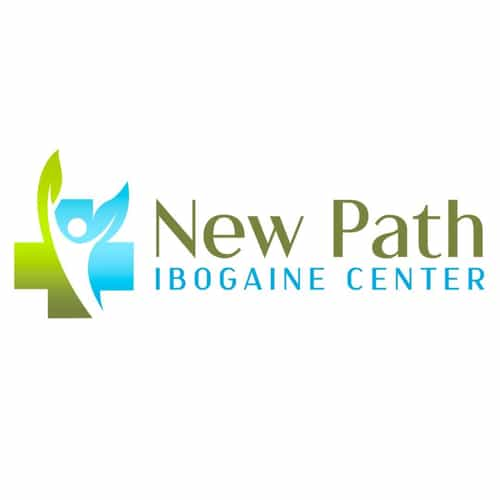


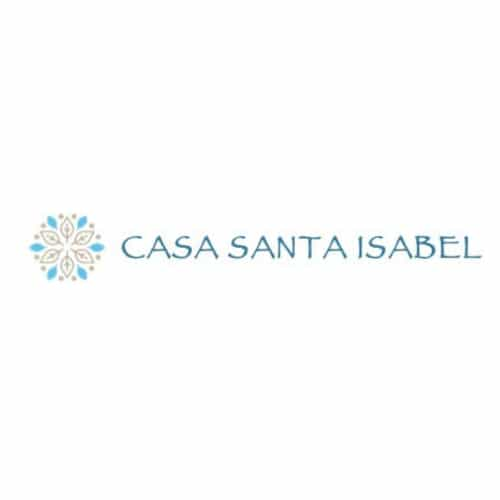

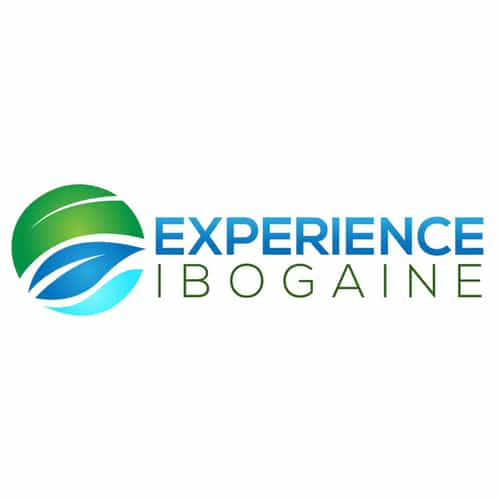
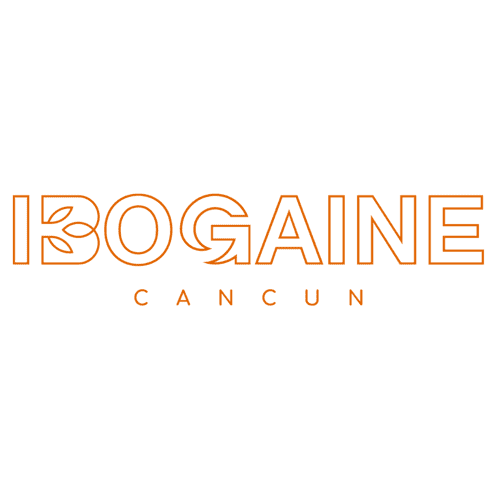


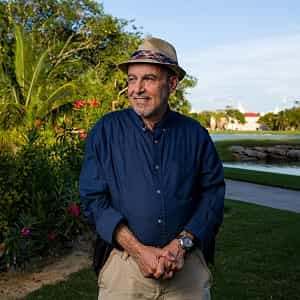
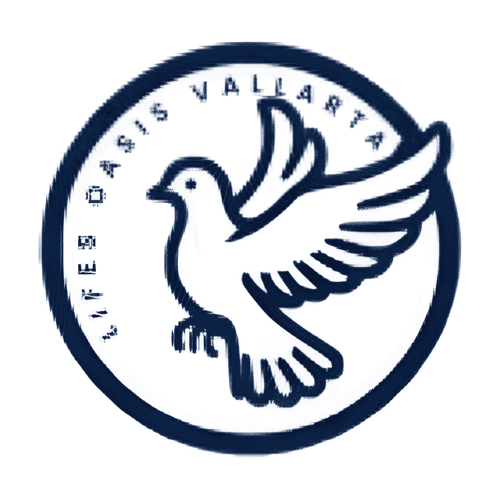

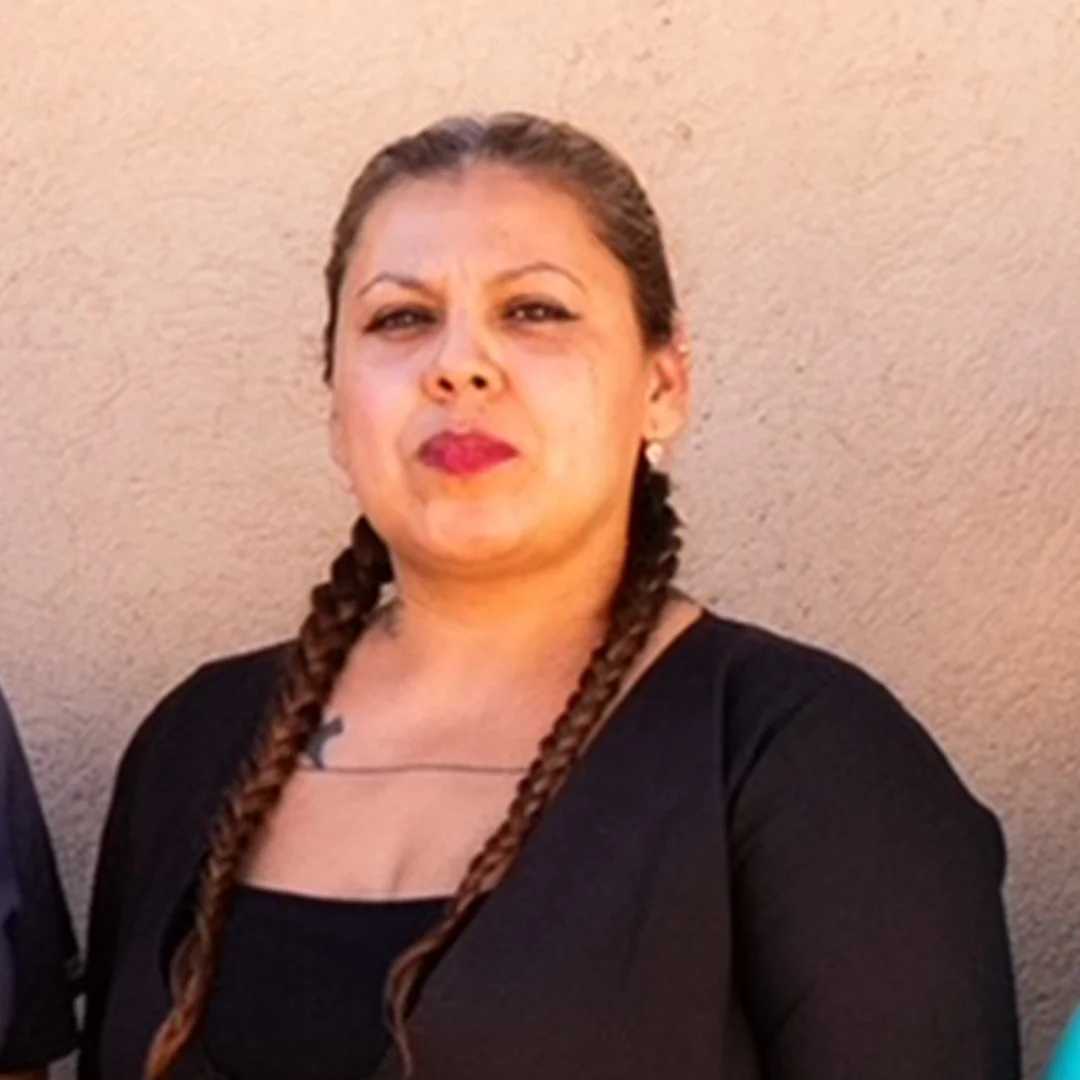

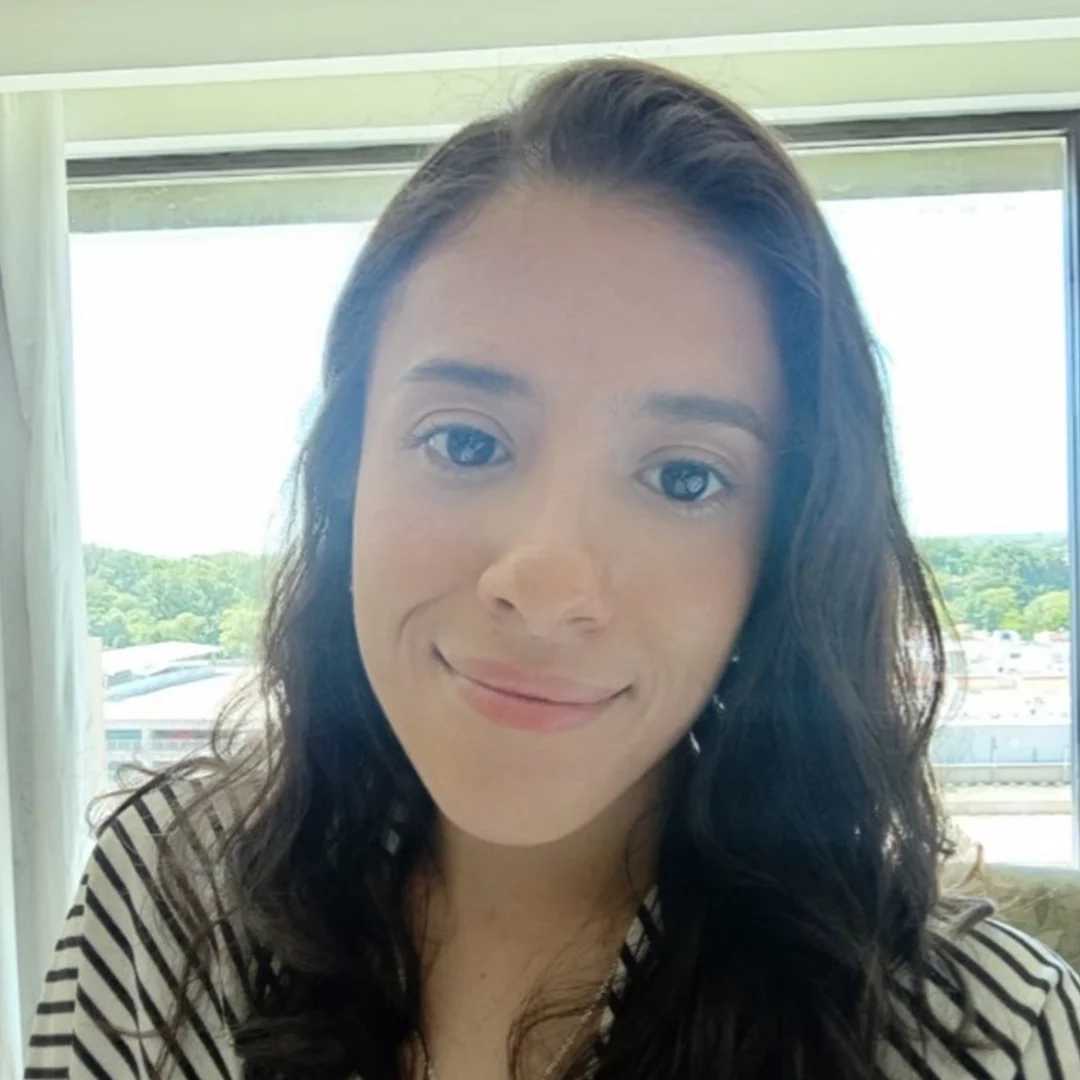
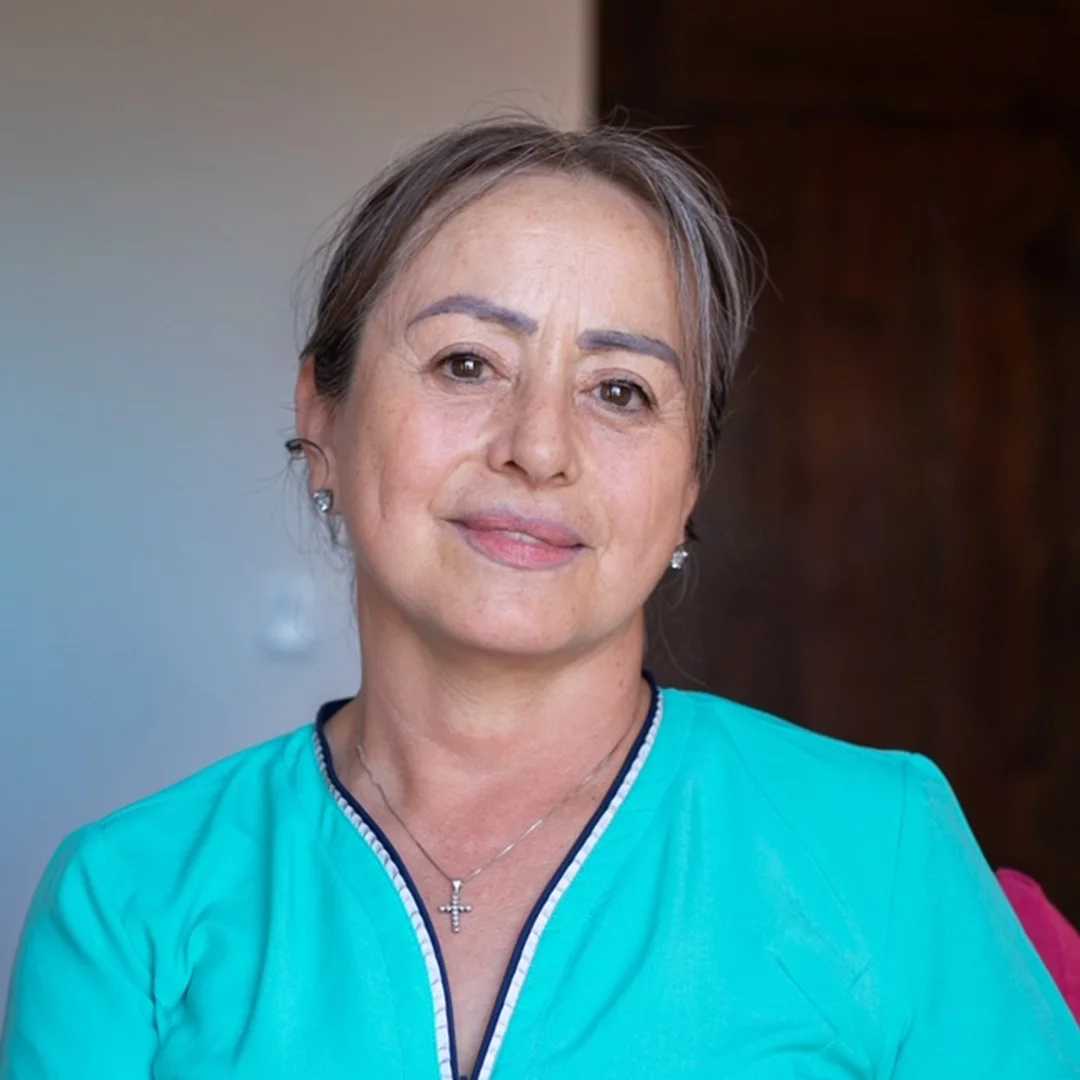
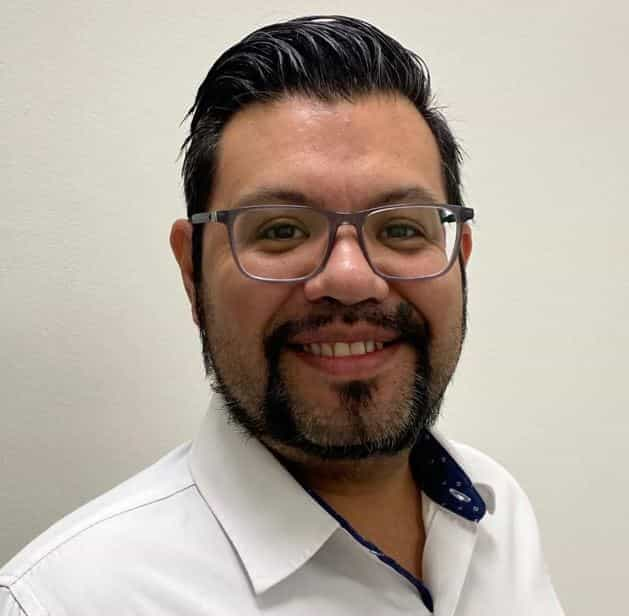




.png)
.png)
.png)
.png)

Awesome environment and the staff was friendly, attentive and professional. I recommend this clinic to anyone struggling with any addictive behaviors.
Read More